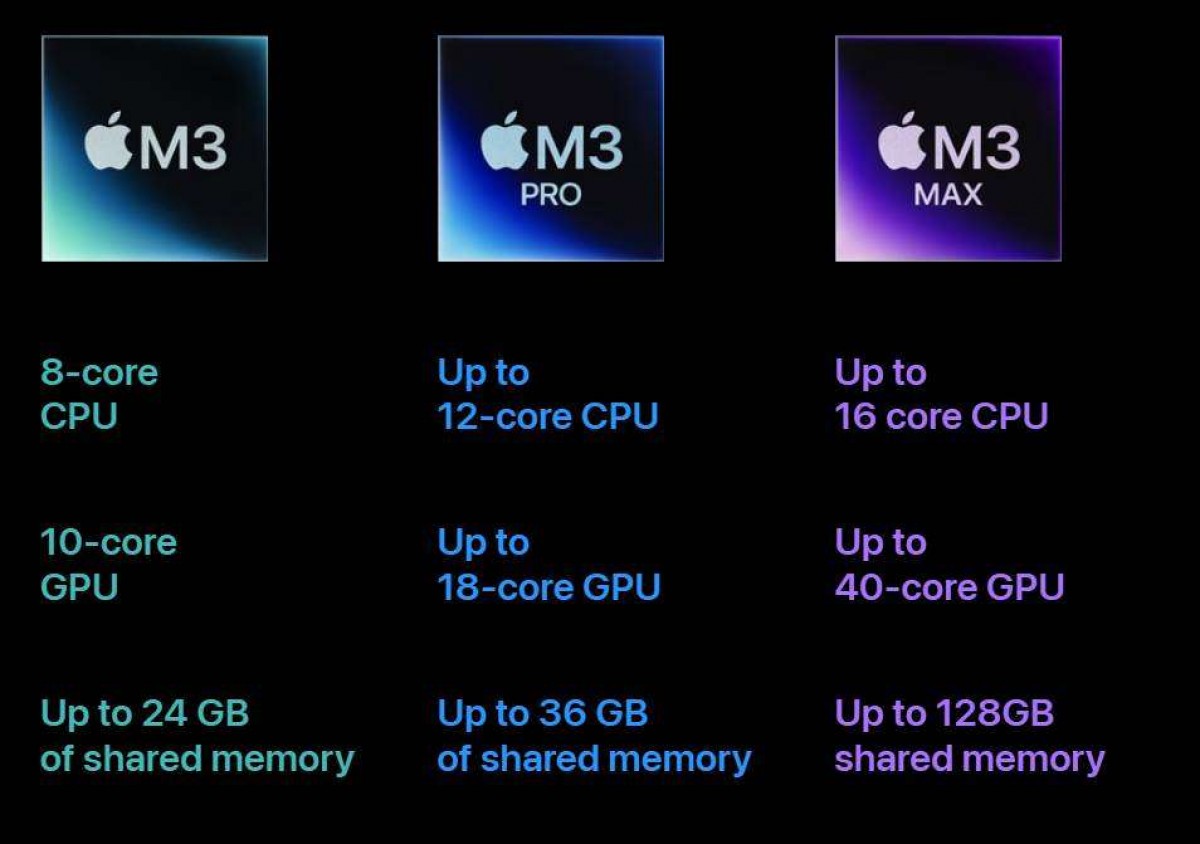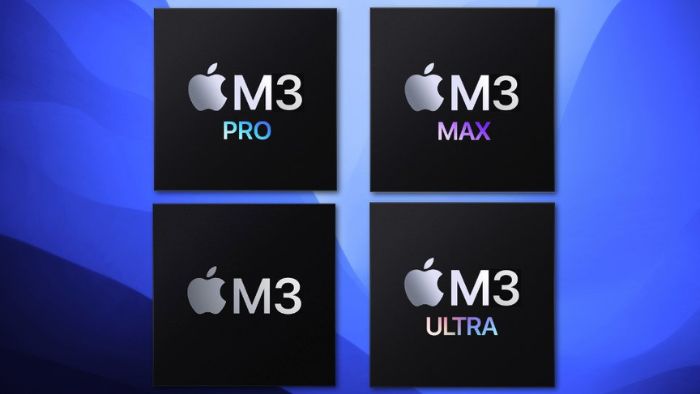Reviewers now have the newly unveiled M3-equipped MacBooks from Apple, and the Geekbench scores are starting to come in. These scores reveal the capabilities of the M3 Max chip, which achieves approximately 3,000 in single-core performance and around 21,000 in multi-core performance on Geekbench 6.
These scores position the M3 Max very close to the M2 Ultra found inside the Mac Pro and Mac Studio, which scores around 2,800 in single-core and 21,000 in multi-core. The M2 Ultra is a 5 nm chip with a power consumption of 60 W, featuring 24 cores (16 for performance and 8 for efficiency). On the other hand, the M3 Max is a 3 nm chip with a 30 W power consumption, equipped with 16 cores (12 for performance and 4 for efficiency). It’s important to note that while the M2 Ultra boasts a 76-core GPU, the M3 Max has half of that, although Geekbench doesn’t assess graphics performance.
During its presentation, Apple claimed that the M3 Max CPU is up to 50% faster than its predecessor, the M2 Max. These multi-core Geekbench scores fall just short of that claim, indicating that the M3 Max is approximately 40% faster.

However, it’s worth mentioning that the M3 Pro may not deliver the same level of performance improvement. On paper, the M3 Pro might seem less powerful than the M2 Pro – the M3 Pro features a 12-core CPU with 6 performance cores and 6 efficiency cores, while the M2 Pro has 8 performance cores and 4 efficiency cores. Both the M2 Pro and M1 Pro offer a memory bandwidth of up to 200 GB/s, whereas the M3 Pro’s memory bandwidth is rated at 150 GB/s.




























Leave a Reply